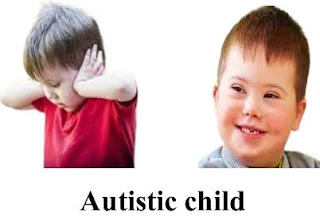What is ASD?
Autism Spectrum Disorders, because Autism isn't a singular disability. These are a spread of complex conditions of the neurodevelopmental type and contain combinations of various symptoms in differing intensities and numbers.
The main area in disease
Social performance
Verbal and Non-verbal communication
Interpersonal relationships
Patterns of behavior
Delayed mental development
Characteristics of autism
In 'Autism Spectrum Disorders' persons have a lack of social impact such as:
Adoption of bizarre speech patterns, like employing a robot-like tone
Avoiding eye contact with others
Not responding to their name
Delayed development of speech skills
Having difficulty with maintaining a conversation
Frequently repeating any word
The apparent problem in understanding feelings and expressing their own
ASD patients may use words repeatedly to others, even for their private work.
Examples of these includes:
Becoming preoccupied with objects, sort of toy or household object
Doing the same work again and again
Around 1 in every 10 people with autism exhibits signs of savant syndrome, although this condition may additionally occur in people with other developmental conditions or nervous system injuries.
The intellectual condition happens when a private shows exceptional capacities during a particular field, such as playing an instrument, figuring amazingly complex wholes at fast, perusing two pages of a book, but memory is not insufficient.
People with autism thrive on routine, and thus the power to predict the outcomes of certain behaviors and places. A change in routine or exposure to loud, overstimulating environments can overwhelm a private with ASD [Autism Spectrum Disorders], leading to outbursts of anger, frustration, distress, or sadness.
No specific test can diagnose autism. Medical experts diagnose through parental or neighbor reports of behavior, observation, and by ruling out other conditions.
Some features of autism / Symptoms
Depression
Behavioral problems
ADHD
Anxiety
Seizures
Problems related to sensitivity
Tuberous sclerosis
How to manage "Hand Flapping" of an autistic child?
Below are some strategies that can be used to reduce hand waving in a variety of settings, at home, at school, and in therapy settings:
- Squeezing a ball or small fidget toy
- Squeezing 'therapeutic', dough or clay
- Press hands firmly together (in prayer position)
- Firmly press your hands onto the other person's hands, such as a long high-five
- Wall handles
- Wash your hands or apply lotion or hand sanitizer (this will provide deep pressure on your hands and increase your body's awareness of what your hands are doing)
- Verbal redirection from an adult (e.g., “It looks like your body is feeling really excited; instead of waving your arms, could you try squishing putty or giving yourself a bear hug?”)
- To summarize, it's important to help your child identify when hand waving is happening and what he can do to replace the behavior, so he doesn't become self-conscious or stand out from his peers. It is also important to ensure consistent strategies across different environments so that the child is not confused. These strategies can become specific to the child. If you have any concerns about hand waving and your child, talk to your occupational therapist to find an individualized plan that will work for you and your whole family.
Homeopathic treatment
Autism isn't a singular disease, so it needs a constitutional treatment in conjunction with some management.
They need neurological treatment, development treatment, and Behavioral treatment.
In early-stage one is that the good medicine is SULPHUR, CARSINOSINUM and BARYTA CARB can cover whole symptoms.


Post a Comment